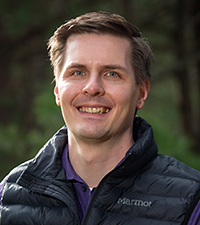January 25-29, 2025
San Diego Convention Center
San Diego, CA, USA


January 25-29, 2025
San Diego Convention Center
San Diego, CA, USA
To 3D or not to 3D – this is a question at the forefront for most people in discovery programs. With the passing of the FDA Modernization Act 2.0, there is a greater interest in the community around the use of physiologically relevant in vitro models for the use of IND enabling submissions to the FDA. This workshop is designed to help participants understand the nuts and bolts of setting up 3D physiologically relevant models will allow participants to understand not only the utility of these models in answering a specific biological question but also to understand the practical importance of the various stages of assay development, automation compatibility and data analysis. Without a robust, scalable and reproducibly functioning assay there is no actionable data. At the end of this workshop, participants should be able to leave with the confidence of understanding the importance of robust and scalable assay development for 3D models and how that will allow them to position and prioritize pre-clinical candidates in their discovery programs.
This course is designed to benefit new DIY’ers to seasoned professionals in high throughput screening.
For us, having much more reproducibility and robustness in the 3D assays being developed across different groups will provide a standard framework for being able to assess the data generated by these 3D systems.

Madhu Nag, Ph.D.
InSphero AG
Madhu Lal-Nag earned her Ph.D. in Molecular and Cellular Oncology from The George Washington University and her Masters in Bioscience Business from The Keck Graduate Institute of Applied Biosciences, Claremont, CA. Her main passion lies in being able to bridge the gap between the academic and the translational aspects of cutting-edge science in oncology, metabolic diseases and investigative toxicology, and in using the results of current therapeutic regimens to creatively translate cutting edge research to immediately serve patient need. Nag's research interests lie in the development of predictive alternative models for safety and efficacy in drug development and evaluation, which is evidenced by her work at the National Center for Advancing Translational Sciences (NCATS/NIH) as the Director of the Trans NIH RNAi Facility as well as at the USFDA as Program Director where she focused on the development of single and multi-cellular tumor spheroids for high throughput small molecule and functional genomics screening and the characterization and validation of these systems for regulatory adoption. She currently serves as the Chief Scientific Officer for InSphero AG.

Timothy Spicer, Ph.D.
The Herbert Wertheim UF Scripps Insitute
Timothy P. Spicer, Ph.D., is a Research Professor and Senior Scientific Director in the Department of Molecular Medicine at The Herbert Wertheim UF Scripps Institute where he also teaches the graduate level course- Drug Discovery. He joined Scripps Research in Florida in 2005. Tim has more than 33 years of experience in drug discovery, including 10 years at Bristol-Myers Squibb which has resulted in at least 4 drugs now being used in clinics. Spicer is currently the director of HTS and discovery biology and co-directs the screening center at UF Scripps. He supervises HTS assay development & related efforts including technology development for which he has impacted on a worldwide scale. Of particular interest to this course, he advanced 3D organoid technologies for HTS which led to more than 16 peer reviewed publications on that subject alone. In part, because of this success, he is now a faculty member in the UF Health Cancer Center, is on the board of directors for the Florida Center for Brain Tumor Research, ChemoSen 3D’s Scientific Advisory Board, ViQi AI’s advisory board, and Ion Biosceinces Board of directors. Spicer is also the past president for SLAS and also serves as associated editor of SLAS Discovery. He has authored >150 drug-discovery related publications and is an inventor on 9 patents, including for those that represent drugs that are now in man.

Hervé Tiriac
University of Californina San Diego, Health, Department of Surgery
Hervé Tiriac is an Assistant Research Scientist at UCSD in the Department of Surgery where he started in 2019. Tiriac’s research focuses on developing 3D systems and platforms for precision medicine that may be utilized in the fight against pancreatic cancer and other gastrointestinal malignancies. During his postdoctoral fellowship in the Tuveson laboratory at Cold Spring Harbor Laboratory he developed the conditions to establish viable organoids derived from hundreds of pancreatic cancer surgical samples as well as fine-needle aspirates and core biopsies. His research is focused on the identification of mechanism of pan-chemotherapy resistance and more recently focused on novel KRAS targeted therapeutic.

Dennis Plenker, Ph.D.
Xilis Inc.
Dennis Plenker is a Sr. Staff Scientist and Sr. Manager at Xilis Inc. He earned his Ph.D. in Genetics at the Institute of Translational Genomics at the University of Cologne. Dennis is driven by using patients models for personalized medicine to ultimately improve patient care. At Cold Spring Harbor Laboratory Dennis was leading the human organoid platform, established with his team more than 100 organoids for the Human Cancer Model Initiative, built and performed high-throughput screening screens and helped to initiate the PASS-01 clinical trial involving clinical feasibility of organoids. Since then, Dennis worked briefly at the Organoid group at Loxo Oncology at Lilly before moving on to Xilis. At Xilis Dennis is driving the diagnostics and the technical translation of patient-derived models using MicroOrganoSpheres (MOS™).